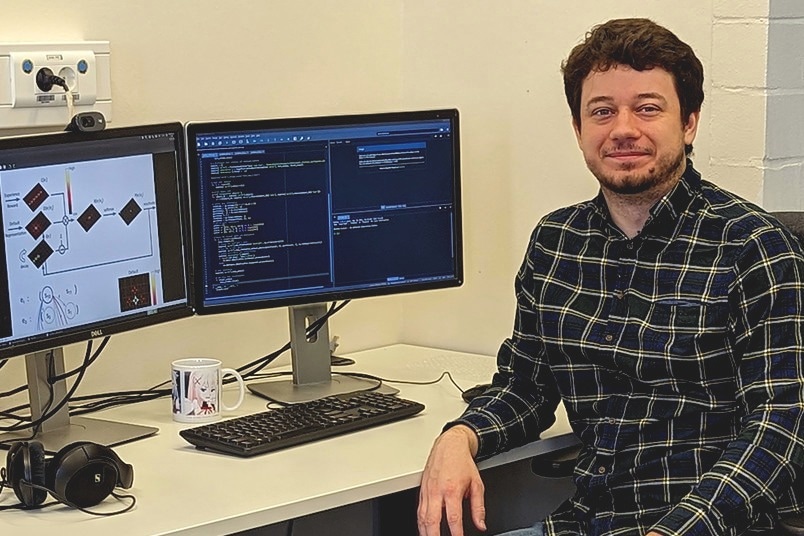
Nicolas Diekmann was able to elucidate more precisely how the brain learns by means of an artificial intelligence. Image Credit: Privat
During the process, separate sequences of nerve cell activities in the hippocampus have been played back repeatedly as per the particular priorities.
If the same pattern has been followed by artificial intelligence, it learns spatial information faster than if the sequences were repeated at random. Nicolas Diekmann and Professor Sen Cheng reported their study outcomes in the journal eLife on March 14th, 2023.
The Brain Revisits Routes While Humans Sleep
The brain region of the hippocampus is of great significance in memory formation. This has been demonstrated by famous cases like that of the patient H.M., who was incapable to develop new memories following huge parts of the hippocampus had been eliminated.
Studies performed on rodents have illustrated the role of the hippocampus in spatial learning and navigation. A significant breakthrough in this context was cells that fire at particular locations, called place cells.
They play a role in a fascinating phenomenon known as replay. When an animal moves around, certain place cells fire one after the other along the animal’s route. Later, at rest or during sleep, the same place cells can be reactivated either in the same order as they were experienced or in reverse order.
Nicolas Diekmann, Neural Computation Institute, Ruhr University Bochum
The sequences that were noted at the time of repetition do not just reflect earlier behavior but also the sequences can be reassembled and they could adapt to structural variations in the surroundings or depict places that are yet to be visited but seen.
We were interested in how the hippocampus produces such a variety of replay types efficiently and what purpose they serve.
Nicolas Diekmann, Neural Computation Institute, Ruhr University Bochum
Hence, a computer model was constructed by scientists in which artificial intelligence learns about spatial information. Eventually, they study how rapidly the AI agent determines an exit from a specific spatial situation. The better it knows it, the quicker it is.
Playback Follows Certain Rules
The learning is done by AI agents by repeating neuronal sequences. But they are not played back randomly but prioritized as per some rules.
Sequences are played back stochastically according to their prioritization. Our model is biologically plausible, generates a manageable computational overhead, and learns faster than agents where sequences are replayed at random. This gives us a little more detail on how the brain learns.
Nicolas Diekmann, Neural Computation Institute, Ruhr University Bochum
Priorities have been given to well-known sequences. Also, positions linked with a reward are played back more continuously.
Journal Reference
Diekmann, N & Cheng, S (2023) A model of hippocampal replay driven by experience and environmental structure facilitates spatial learning. eLife. doi.org/10.7554/eLife.82301.